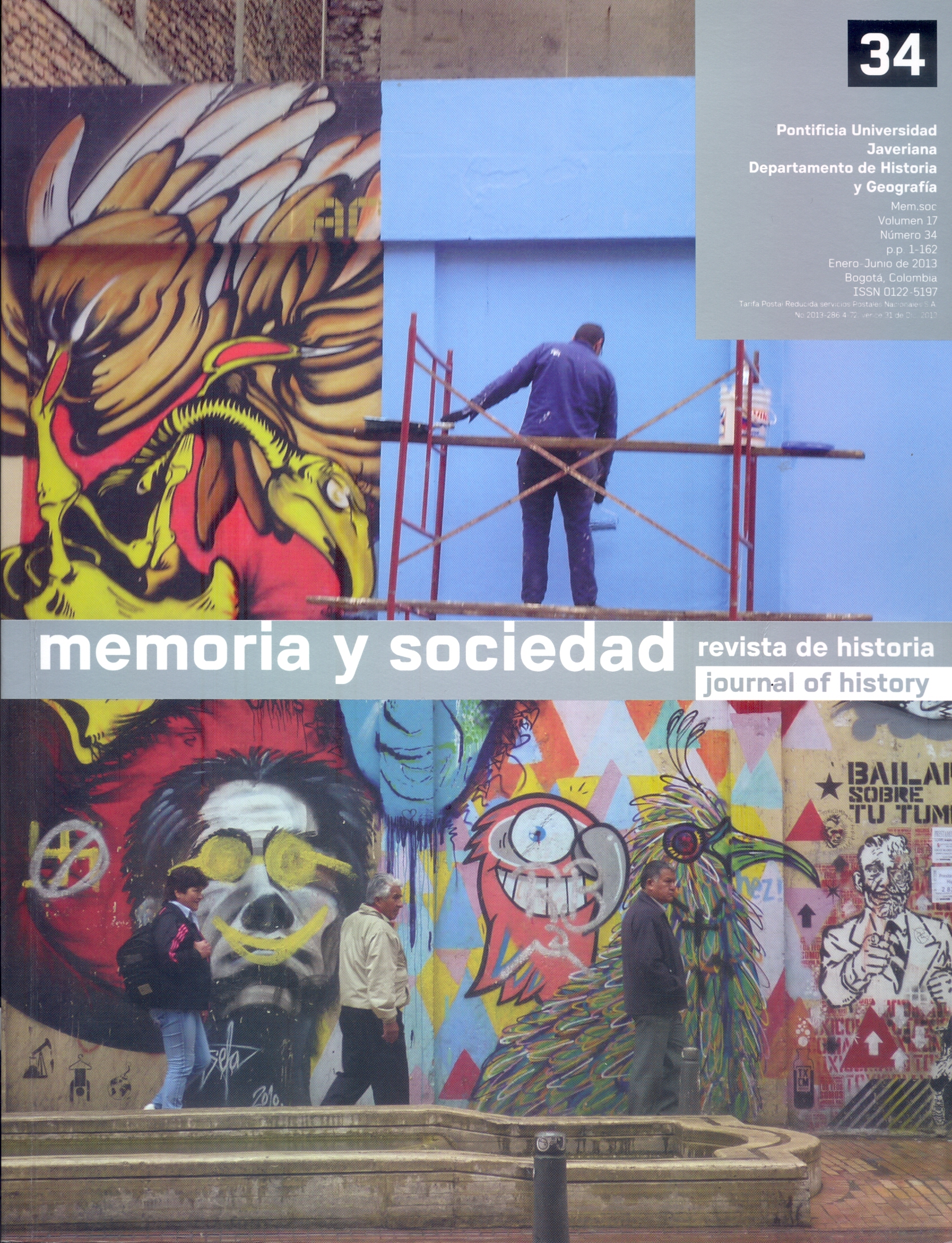Abstract
The border shared by the countries of the Amazon was reset in the republican period not without some difficulty due to its remoteness. Such reconfiguration was motivated by the private interests of farmers, exporters and businessmen, of which the most important one in the common border between Peru, Colombia and Brazil was the Casa Arana. The author reviews the case of the pillaging of indigenous groups in that geographical axis carried out by such company in places like La Pedrera, El Encanto and La Chorrera, and describes the related experiences of a uitoto woman. The war between Colombia and Peru is thus analysed from the perspective of this reconfiguration and the geopolitical context at the time. The final section highlights the need for an agenda for the justice and reparation of the indigenous groups that were victims of this genocide.The journal Memoria y Sociedad is registered under a Creative Commons Attribution 4.0 International Public License. Thus, this work may be reproduced, distributed, and publicly shared in digital format, as long as the names of the authors and Pontificia Universidad Javeriana are acknowledged. Others are allowed to quote, adapt, transform, auto-archive, republish, and create based on this material, for any purpose (even commercial ones), provided the authorship is duly acknowledged, a link to the original work is provided, and it is specified if changes have been made. Pontificia Universidad Javeriana does not hold the rights of published works and the authors are solely responsible for the contents of their works; they keep the moral, intellectual, privacy, and publicity rights.
Approving the intervention of the work (review, copy-editing, translation, layout) and the following outreach, are granted through an use license and not through an assignment of rights. This means the journal and Pontificia Universidad Javeriana cannot be held responsible for any ethical malpractice by the authors. As a consequence of the protection granted by the use license, the journal is not required to publish recantations or modify information already published, unless the errata stems from the editorial management process. Publishing contents in this journal does not generate royalties for contributors.

